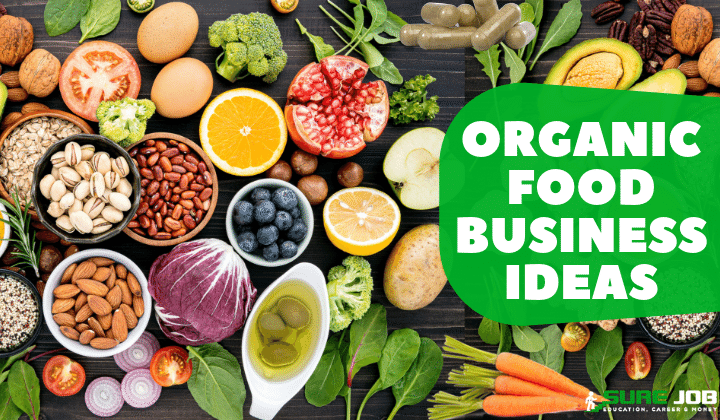
Organic farming is a sustainable agricultural practice that avoids synthetic pesticides, fertilizers, and genetically modified organisms (GMOs), focusing instead on natural methods to maintain soil health and ecological balance. By employing techniques such as crop rotation, composting, and biological pest control, organic farming enhances biodiversity, conserves water, and reduces pollution. The result is not only better for the environment but also for consumers, who benefit from food free of artificial additives and chemicals. If you’re looking to incorporate organic produce into your meals, try making a vibrant quinoa salad with organic vegetables like cherry tomatoes, cucumbers, and bell peppers, tossed in a lemon-tahini dressing. For a hearty option, prepare an organic vegetable stir-fry with seasonal produce and serve it over brown rice. Both recipes highlight the fresh, natural flavors of organic ingredients and support sustainable farming practices.

Organic farming represents a sustainable and eco-friendly approach to agriculture, focusing on cultivating crops and raising livestock without the use of synthetic chemicals, pesticides, or genetically modified organisms (GMOs). This method prioritizes the health of the soil, the environment, and the consumers by using natural fertilizers, composting, and crop rotation to maintain soil fertility and reduce environmental impact. Organic farmers also emphasize biodiversity, promoting the use of natural pest control methods and encouraging a variety of plants and animals on the farm to create a balanced ecosystem.
The benefits of organic farming extend beyond environmental health. For consumers, organically grown food often means fewer chemical residues and a higher nutritional profile, as some studies suggest that organic produce can contain more vitamins and antioxidants compared to conventionally farmed alternatives. Furthermore, organic farming supports animal welfare, as animals raised under organic standards are typically given access to outdoor spaces and are fed organic feed, ensuring a more humane and natural living environment.
Incorporating organically farmed ingredients into everyday meals not only supports sustainable practices but also enhances flavor and nutrition. For instance, you might try preparing a wholesome organic vegetable and grain salad that showcases the vibrant flavors of fresh, organic produce. Begin by gathering a variety of organic vegetables such as cherry tomatoes, cucumbers, bell peppers, and radishes. These ingredients, grown without synthetic pesticides, offer a burst of natural taste and crunch. Dice the vegetables and toss them together in a large bowl. For a hearty addition, cook some organic quinoa or farro, which provides a satisfying base for the salad and adds a rich texture.
Another delightful recipe to try is a comforting organic chicken and vegetable stew. Begin by selecting organic chicken thighs or breasts, which are free from antibiotics and hormones. Cut the chicken into bite-sized pieces and sauté them in a large pot with a splash of organic olive oil until golden brown. Remove the chicken and set it aside. In the same pot, add chopped organic onions, carrots, and celery. Cook the vegetables until they are tender and fragrant. Return the chicken to the pot, and then pour in organic chicken broth along with a can of diced organic tomatoes. Season the stew with dried organic thyme, rosemary, and bay leaves. Allow the stew to simmer until the chicken is fully cooked and the flavors have melded together.
Organic farming and recipe ideas go hand in hand, reflecting a commitment to both sustainable agriculture and delicious, health-conscious eating. By choosing organically farmed ingredients and incorporating them into your cooking, you support practices that are better for the environment, promote animal welfare, and often result in tastier and more nutritious food. Whether you’re preparing a fresh vegetable salad or a hearty chicken stew, the principles of organic farming enhance your culinary experience while contributing to a more sustainable food system.
For a finishing touch, add a handful of organic spinach or kale just before serving, allowing it to wilt slightly in the hot stew. This not only adds a pop of color but also boosts the nutritional content of the meal. Serve the stew with a side of crusty organic whole-grain bread for a satisfying and nourishing meal.









